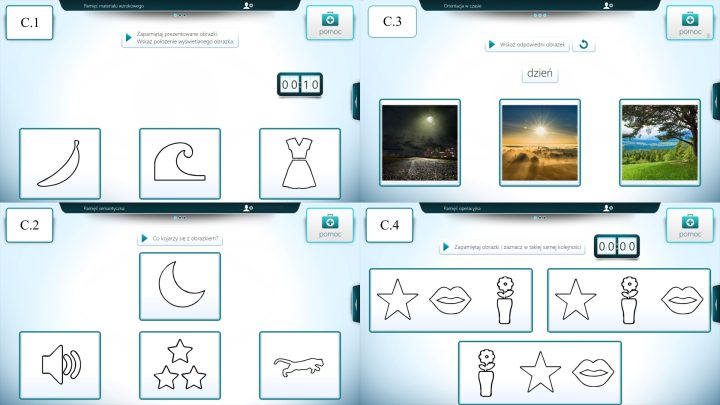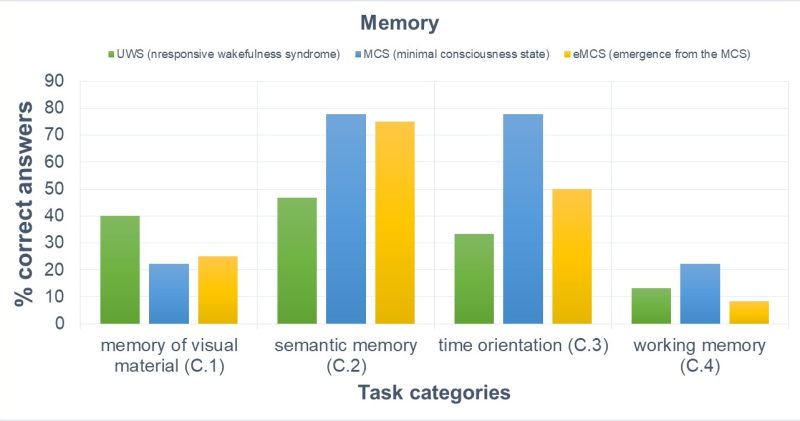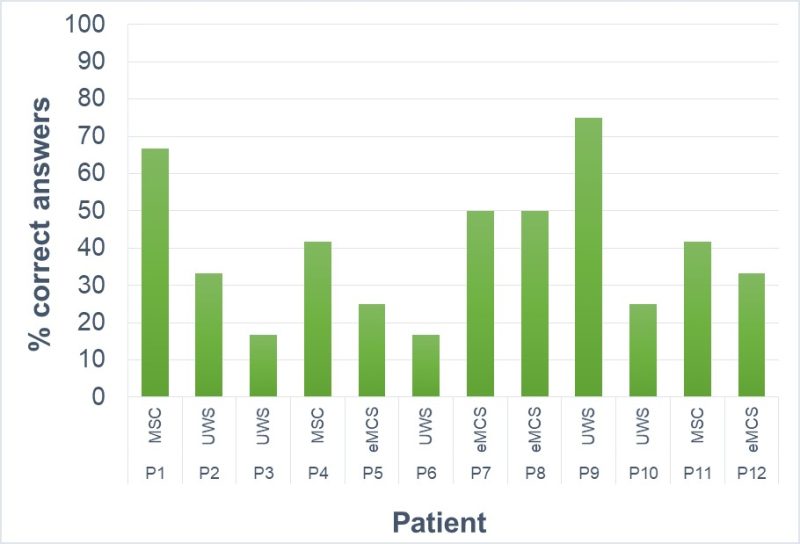Authors: Katarzyna Kujawa, Alina Żurek, Agata Gorączko and Grzegorz Zurek
Full article: https://www.frontiersin.org/articles/10.3389/fneur.2022.841095/full
An article published in the journal Frontiers in Neurology on assessing the memory of patients with impaired consciousness
In this article, various components of memory were taken into account to assess its level in patients with varying degrees of consciousness disorders. The focus was on the assessment of four aspects of memory, i.e. memory of visual material (area C.1), semantic memory (area C.2), orientation in time (area C.3) and working memory (area C.4); each patient had to perform a total of 12 tasks (individual categories below)

The average results obtained by the patients in the study are shown below. It turned out that the subjects had the greatest difficulty in working memory tasks (C4). Interestingly, patients whose state of consciousness was the lowest (UWS) solved the most tasks in the field of memory of visual material on average, while in other areas of the memory studied by us, the highest scores were obtained by patients in the MCS state. It seems, therefore, that it is not legitimate to assess the state of a patient’s memory solely on the basis of a diagnosis of his state of consciousness, prepared using the traditional method.

Subsequently, the results of individual patients were analyzed, checking the average percentage of correct answers given by them in tasks diagnosing their memory (see chart below). This stage of analysis again showed that the results were different than expected (lower awareness = lower scores, higher awareness = higher scores). It is worth paying attention to patient P9, whose state of consciousness was described at the UWS level, meanwhile he solved most memory tasks correctly. Also noteworthy are the results of patient P5 (eMCS state of consciousness), who obtained almost the lowest memory score. It can therefore be said that the assessment of the patient’s state of consciousness defining him as a person in the state of UWS, MCS, eMCS is only a part of the information about the patient and does not preclude or determine the possibility of communication with the patient, and the assessment of memory should be made with the use of tools that objectively evaluate memory.

These studies show that it is necessary to conduct the neurorehabilitation process in a group of patients after brain damage, regardless of the degree of their consciousness disorder.

